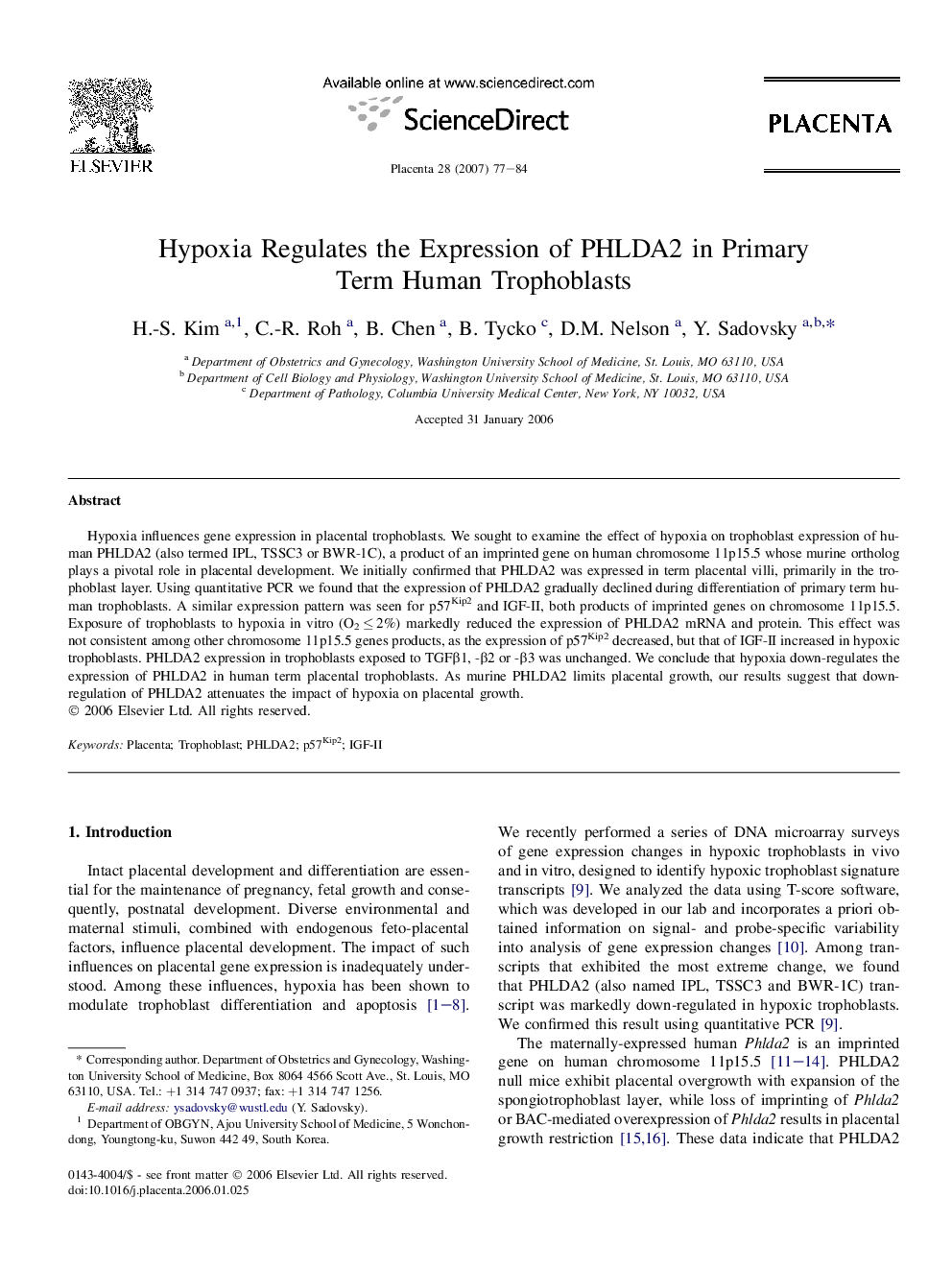| Article ID | Journal | Published Year | Pages | File Type |
|---|---|---|---|---|
| 2789802 | Placenta | 2007 | 8 Pages |
Abstract
Hypoxia influences gene expression in placental trophoblasts. We sought to examine the effect of hypoxia on trophoblast expression of human PHLDA2 (also termed IPL, TSSC3 or BWR-1C), a product of an imprinted gene on human chromosome 11p15.5 whose murine ortholog plays a pivotal role in placental development. We initially confirmed that PHLDA2 was expressed in term placental villi, primarily in the trophoblast layer. Using quantitative PCR we found that the expression of PHLDA2 gradually declined during differentiation of primary term human trophoblasts. A similar expression pattern was seen for p57Kip2 and IGF-II, both products of imprinted genes on chromosome 11p15.5. Exposure of trophoblasts to hypoxia in vitro (O2 â¤Â 2%) markedly reduced the expression of PHLDA2 mRNA and protein. This effect was not consistent among other chromosome 11p15.5 genes products, as the expression of p57Kip2 decreased, but that of IGF-II increased in hypoxic trophoblasts. PHLDA2 expression in trophoblasts exposed to TGFβ1, -β2 or -β3 was unchanged. We conclude that hypoxia down-regulates the expression of PHLDA2 in human term placental trophoblasts. As murine PHLDA2 limits placental growth, our results suggest that down-regulation of PHLDA2 attenuates the impact of hypoxia on placental growth.
Related Topics
Life Sciences
Biochemistry, Genetics and Molecular Biology
Developmental Biology
Authors
H.-S. Kim, C.-R. Roh, B. Chen, B. Tycko, D.M. Nelson, Y. Sadovsky,
